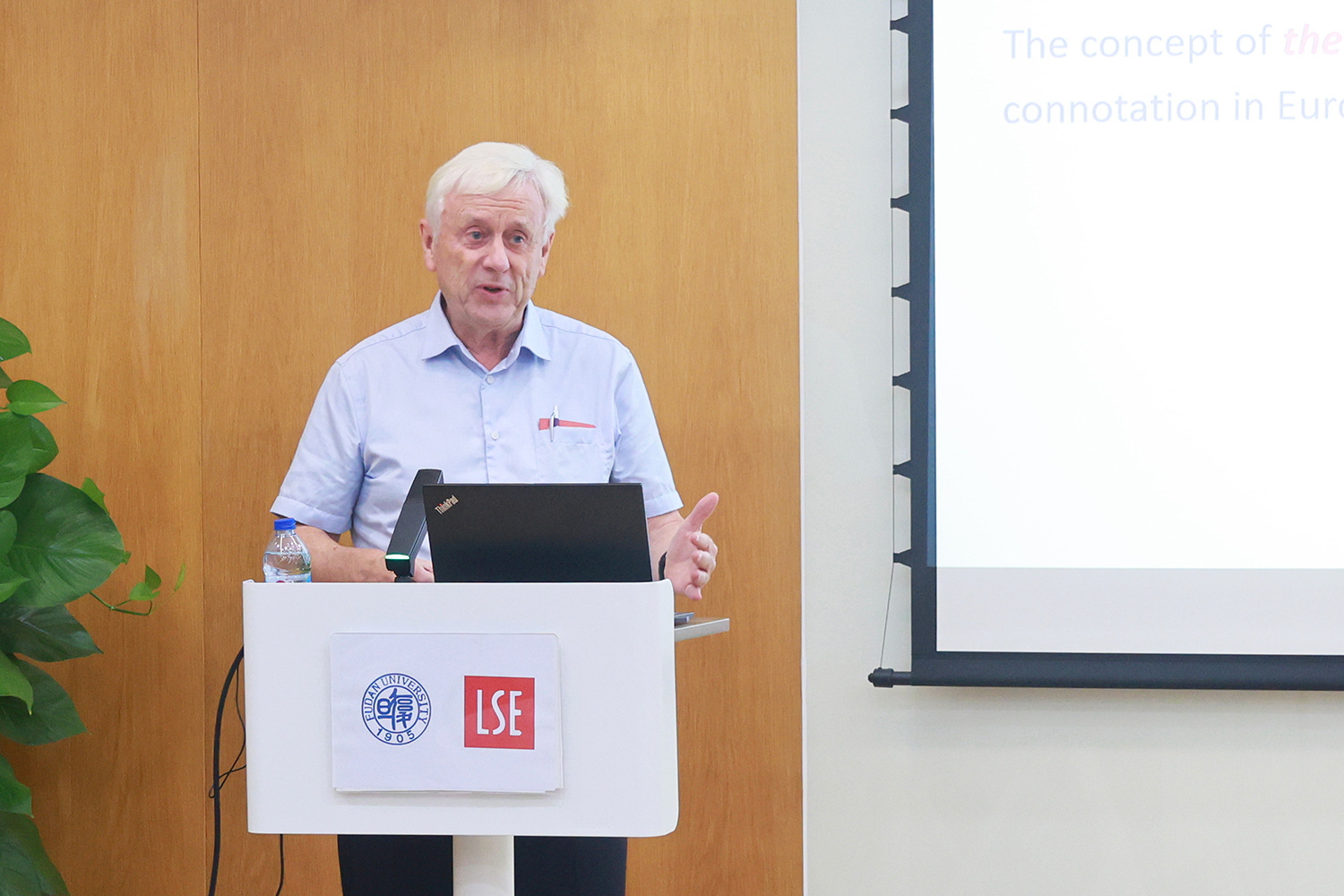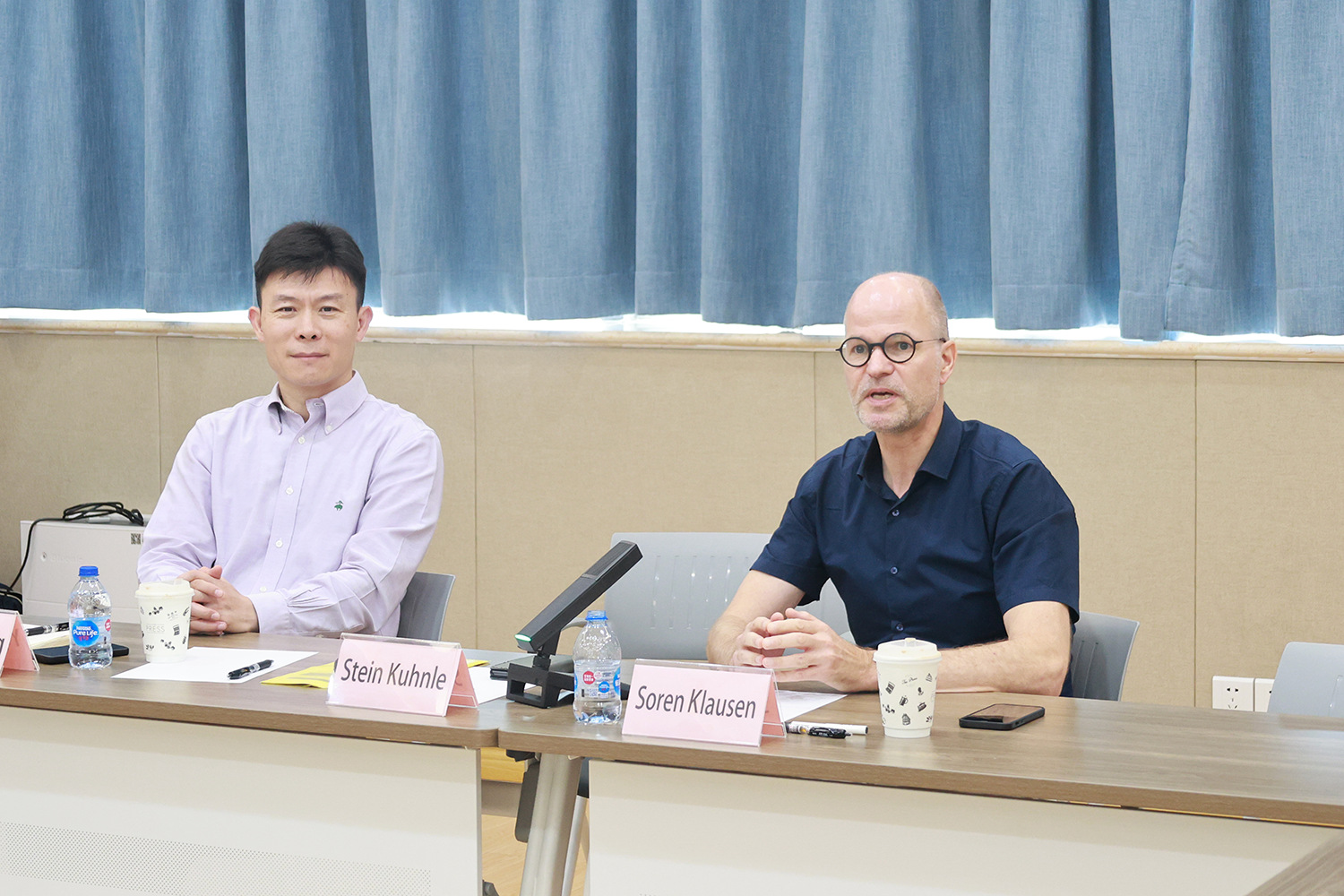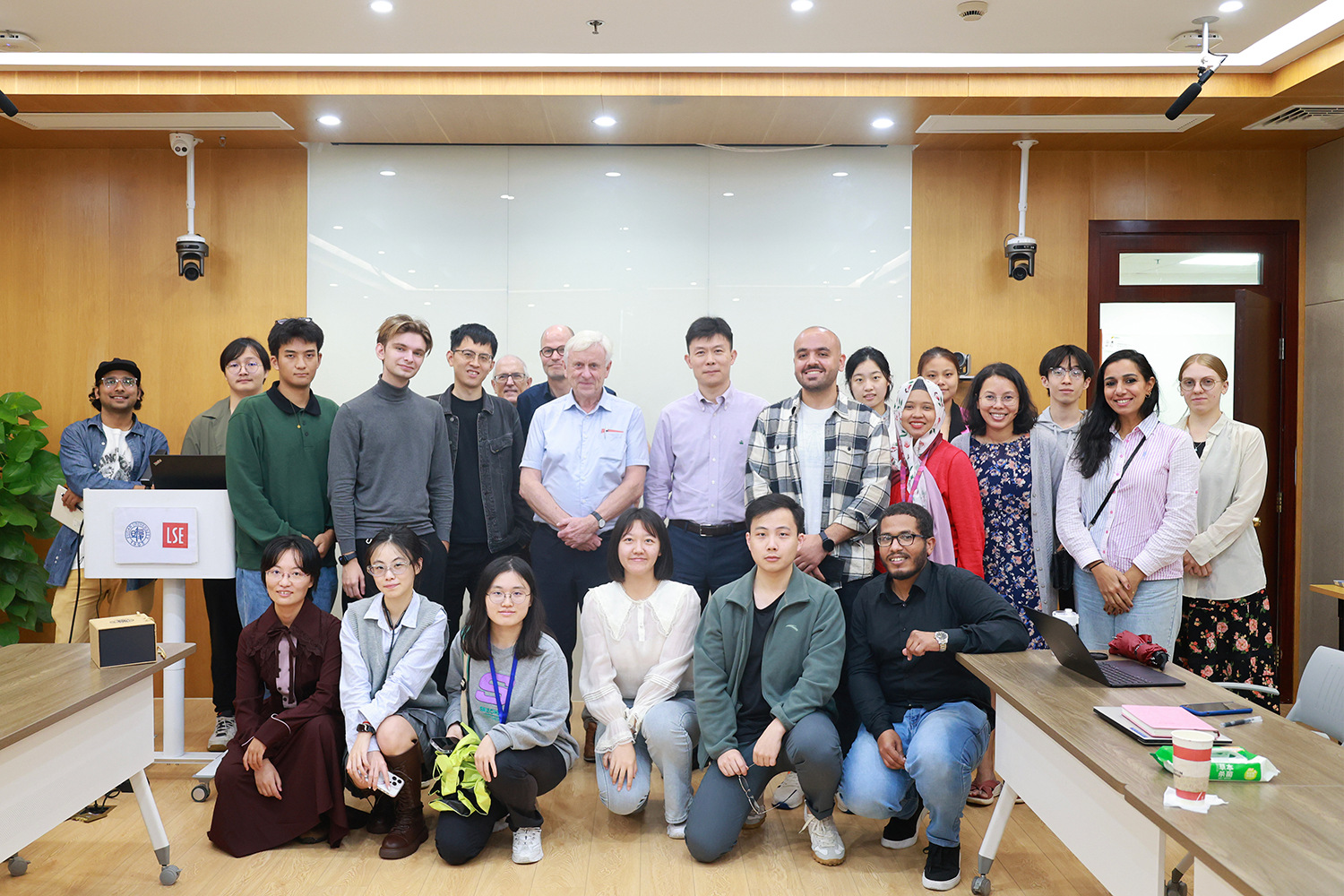Events



On October 17, 2024, the Fudan Institute for Global Public Policy (IGPP) organized the 60th lecture of the Fudan-LSE Lecture Series. Professor Stein Kuhnle delivered a lecture on the theme of The Welfare State: Challenges of Sustainability in Times of New Uncertainty. The lecture was chaired by Professor Yijia Jing, Dean of IGPP. Professor Søren Harnow Klausen at the Department of Design, Media, and Educational Science of the University of Southern Denmark served as the commentator for the lecture.
Professor Kuhnle, an Emeritus Professor of Comparative Politics at the University of Bergen, Norway, has held visiting scholar positions at several prestigious universities worldwide. His research primarily focuses on welfare states and the crises and challenges they face. Professor Kuhnle analyzed the profound impacts of demographic shifts, migration trends, and the rise of populism on European welfare systems. While acknowledging that migration can help alleviate labor shortages, he emphasized the importance of implementing tailored integration strategies for different types of migrants. This is essential to address challenges such as social integration difficulties and growing anti-immigration sentiments.

During the commentary session, Professor Klausen raised concerns about the populist-driven redefinition of welfare states, noting that they increasingly prioritize the rights of domestic citizens over inclusivity. Building on this point, Professor Kuhnle observed that populist parties, which historically opposed welfare states, now advocate for welfare policies but restrict their benefits exclusively to native citizens and argued that this nationalist shift represents a major political challenge for Europe.

During the Q&A session, the audience engaged in lively discussions on the role of welfare states, such as their potential to foster dependency or reduce work incentives as well as whether nations facing housing crises and frequent strikes could still be considered welfare states. Professor Kuhnle stressed that conditional policies are effective in reducing poverty without encouraging dependency. He also argued that the essence of a welfare state lies in its structural design, rather than in completely avoiding social issues.
